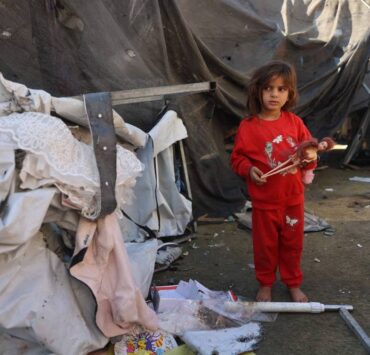On legalizing divorce or should only death do us part?

LAST May 22, 2024, the House of Representatives finally approved on third and final reading House Bill No. 9349, or the proposed Absolute Divorce Act. In a country that values the sanctity of marriage, people have dissenting opinions about this matter. Some people believe that divorce has detrimental effects on the family and society, while others believe that it will help families that suffer an unhappy, abusive, and irreparable marriage.
People opposing divorce believe that marriage is sacred and has deep spiritual and social significance. The deeply embedded Catholic influence in Philippine culture where the Church teaches that marriage is a sacrament makes it indissoluble by human laws. Legalizing divorce would cause the dissolution of its essence in married couples.
Divorce is considered a threat to family unity and children of a divorced family bear the consequence of the separation of parents. The emergence of single-parent families can cause negative psychological and social impacts on children. The opposition also views divorce as a gateway to escape the weight of the marriage that goes against the essence of the vow. They suggest that marital problems can be solved by counseling.
On the other hand, legalizing divorce recognizes that some marriages are beyond fixing. Staying in wedlock does prolong harm and agony, specifically in abusive relationships. Divorce is necessary in toxic relationships that have the occurrence and recurrence of physical, emotional, and psychological abuse. Cases of infidelity and abandonment are also valid reasons for divorce as staying together only perpetuates unhappiness and agony.
Children can also suffer from having to witness the abuse in a toxic marriage. Staying in a toxic environment despite having a complete family can cause long-term damage. Aside from witnessing abuse, children who experience it are more likely to develop anxiety, depression, and memory issues caused by the trauma.
Legalizing divorce does not necessarily mean damaging the essence of marriage but it is proposed as a resort for irreparable marriages. It allows victims of domestic abuse to rebuild themselves. Moreover, it gives legal rights to individuals to leave a marriage that no longer provides love, security, safety, or peace.
Despite opposing perspectives, both sides value the sake of family and the children. The opposing view argues that divorce dissolute the essence of marriage and weakens the family structure, the proponents view this as a way to protect children and couples from toxic environments. Both of them also recognize that not all marriages work well.
Advocates of legalizing divorce should implement mandatory counseling and mediation among couples before filing for legal separation. It ensures that preventive measures are taken before concluding that divorce is what the couple needs. It is also important to limit divorce to specific grounds, such as abuse, abandonment, infidelity, or neglect to still protect family values and the sanctity of marriage.
Filipinos are torn between preserving the holy matrimony of marriage and providing legal solutions for abusive and irreparable marriages.
Both sides share the same goal of protecting the family and ensuring the well-being of the children. A balanced approach in this situation could involve mandatory counseling and mediation between couples to ensure that it is approached with care before offering the last resort of divorce. It also includes regulating the grounds for filing for divorce to avoid casual separation. The presence of infidelity, abuse, neglect, and abandonment should be the only valid reasons for filing for divorce. Despite having strong points on both sides, debates on legalizing divorce are still a gray area in a country that is still conservative but also progressive. It is important to consider the middle ground in this gray area and have a balanced approach to avoid compromising each side of the issue.

















